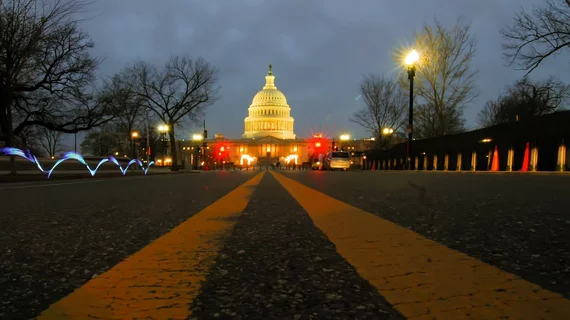CMS delays start of Radiation Oncology Alternative Payment Model yet again
The Centers for Medicare & Medicaid Services has delayed the controversial Radiation Oncology Alternative Payment Model yet again, cancer care advocates revealed on Wednesday.
The mandatory bundled payment initiative was slated to kick off on Jan. 1, 2023, following numerous delays. However, the agency has now deferred the launch to a yet-to-be-determined date, which will be decided through future rulemaking.
Lawmakers and the American Society for Radiation Oncology (ASTRO) have pushed for the postponement. The latter praised the delay on April 6 while also emphasizing it is still “committed to value-based care in radiation oncology.”
“ASTRO remains hopeful that during this process, CMS also makes the adjustments recommended by Congress and the broad coalition of stakeholders within the radiation oncology community as we remain concerned that the model in its current form is too punitive for clinics,” Board of Directors Chair Laura A. Dawson, MD, said in a statement. “We believe that the modifications proposed by ASTRO and the radiation oncology community will ensure successful participation among physicians and facilities and produce significant savings for the Medicare program,” she added later.
Eighty-five members of Congress joined the society and others in pushing CMS to quash “draconian” cuts to radiation oncologist pay via the RO model and Medicare fee schedule last year. The recommended fixes included reducing the model’s “excessive” discount factor and not penalizing providers in the fee schedule. They also advocated for a “Health Equity Achievement in Radiation Therapy” payment in the RO Model to support wraparound services such as patient care navigation.
CMS finalized the long-awaited RO model in 2020. Its goal is to create more predictable payments in cancer care, incentivize the use of cost-effective treatments, and save the agency $230 million over the next five years. The model would do so by providing bundled payments during a 90-day episode of care to radiotherapy providers treating one of 16 different cancer types. It will require participation from physicians in randomly selected geographic areas that contain about 30% of all eligible Medicare fee-for-service radiotherapy episodes nationally.

